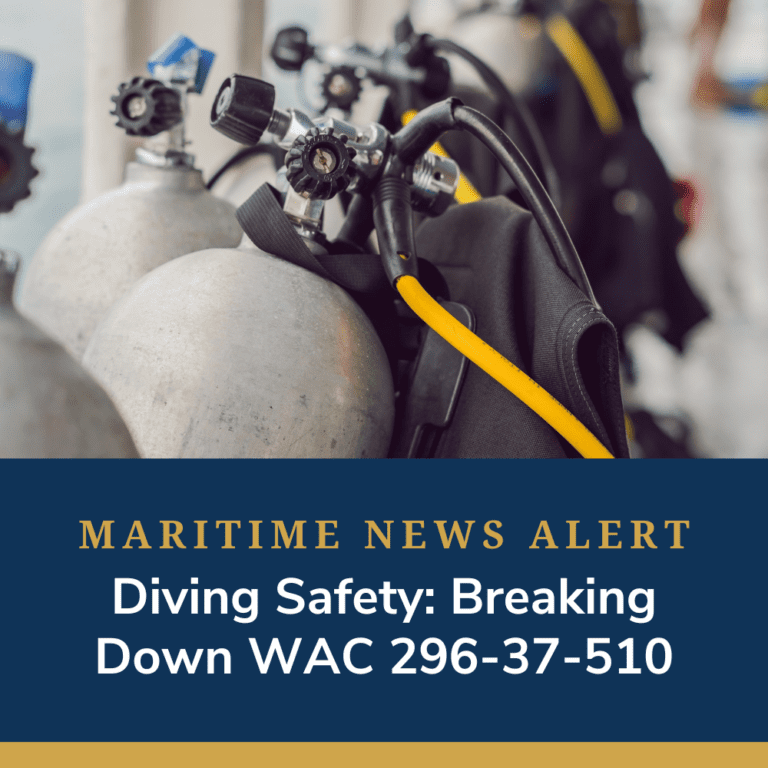
Commercial diving is one of the most dangerous maritime jobs. Working at sea can pose a lot of health and injury risks. Uncalm waters, propeller cuts, and dangerous duties can increase the likelihood of a commercial diver getting injured at work. The State of Washington has specific legislation that aims to protect commercial divers on the job.
This blog post will clarify Washington Administrative Code 296-37-510 which breaks down diving safety regulations on the job.
Diving on the Job
Some of the most common diving injuries involve ear and sinus barotrauma, decompression sickness, and marine envenomation.
These injuries can be prevented by following proper safety protocol and ensuring that all diving equipment is properly maintained. Under the Department of Labor and Industries, a certain safety standard is maintained to protect diving workers.
The set of regulations is related to diving operations within all types of work including:
- Construction
- Ship repairs
- Ship Building
- Shipbreaking
- Longshoring
It is important to note that these regulations do not apply to scuba diving teachers and search and rescue teams.
Diving Safety Regulations
In order for employers to ensure that their employees are mitigating diving risks, they must provide a diving safety manual that includes diving procedures, emergency care procedures, and mandatory criteria for diving training and certification.
Divers must adhere to the buddy system when diving and be in continuous contact with each other. The hoisting gear used must be inspected and certified to safety standards for longshore, stevedore, and other waterfront operations. By checking safety gear and ensuring that employees have a buddy when diving, employers are able to mitigate workplace injuries.
Diving Emergency Procedures
There are important emergency protocols to follow on the job site if diving is required. These emergency protocols allow for work sites and employees to be prepared, in case accidents occur. However, the employer is able to deviate from procedures in order to minimize a situation that can cause death or harm.
It is important to be aware of these safety rules and regulations if you are required to dive at your place of work.
What should I do if I have been Injured at Sea?
If you have been injured while working as a commercial diver, it is important that you fully understand your rights. For an immediate, no-obligation telephone consultation to discuss your maritime injury case, call Injury At Sea at 1-800-732-7258. You can trust us to protect your rights and get you fair compensation for the injuries you have suffered.